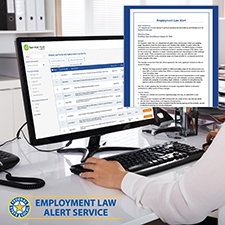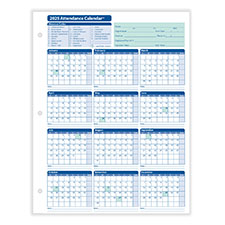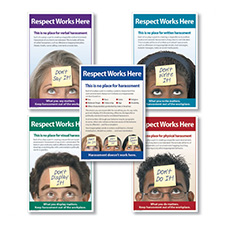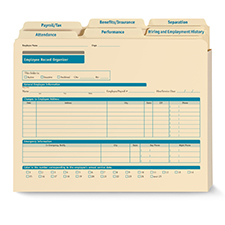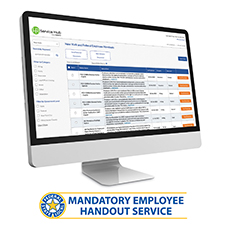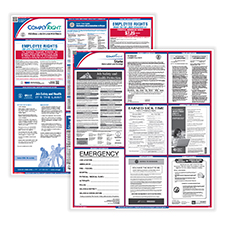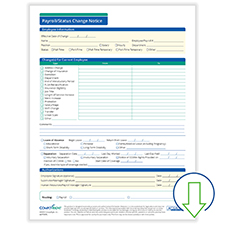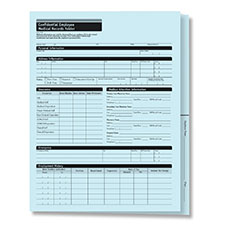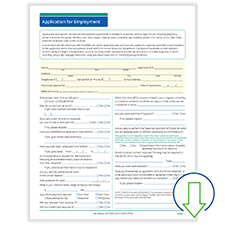
Done right, performance reviews can help employees improve and drive your company toward greater success. But if handled poorly, they can have harmful effects on morale
and motivation.
So how can you achieve a good balance and institute a performance review process that captures the positives and minimizes the negatives? Here are some guidelines for more effective performance reviews.
Finding the Most Valuable Approach
The type of performance review that works best for you will depend on the size of your business, the experience of your managers and your overall supervisory structure. You may find that incorporating elements from a variety of different approaches is most efficient. Some common methods include:
- Competency-based review — Ties performance to successful execution of specific, goal-aligned behaviors. It’s an especially useful approach for inexperienced managers, as it provides a blueprint for appraisal and review.
- Crowd-sourced or 360 review — Uses feedback from coworkers and colleagues to evaluate performance. This can provide more well-rounded input but can also be subjective. Feedback must be tempered by objective details, such as goal achievement or success metrics.
- Employee self-evaluation — Requires the employee to complete a self-assessment in advance of the review meeting. Works best when combined with manager assessment.
- Coaching approach — Involves managers meeting one-on-one with employees regularly, such as weekly, to set objectives and discuss progress. This works best in companies with experienced managers who can mentor others.
Always evaluate your employees based on progress toward stated goals,
not subjective standards like personality.
Practices to Avoid with Performance Management
For managers and employees alike, performance reviews are often a burden to complete. Bad habits or careless practices can complicate matters. For more effective reviews, avoid making these common mistakes:
- Saving all feedback for a once-a-year review — Meaningful performance reviews start with interacting with employees as situations, positive or negative, occur.
- Focusing only on recent work — Don’t let near-sightedness result in failing to recognize notable employee achievements from earlier in the year. Document achievements (or issues requiring discipline) as they happen.
- Basing reviews on opinion instead of data — Evaluate your employees based on progress toward stated goals, not subjective standards like personality. If an employee’s attitude is a problem, find a way to frame this toward an action,
such as “Present potential solutions to problems” instead of “Avoid complaining
during meetings.” - Letting personal bias interfere with evaluation — Never come from a position of whether you like a person, or if the employee works the same way you do. Evaluate based on achievements and results, not your feelings.
- Lumping all employees together — Combined group or team evaluations fail to address individual strengths and weaknesses.
- Competition creeping into crowdsourcing — If 360 feedback turns into a way for employees to backstab others, you may need to rethink that approach.
- Setting goals too low or high — If you find employees are not challenged to improve, or aren’t meeting expected goals, reevaluate your expectations.
- Not applying standards fairly — Treating employees with similar job roles differently can lead to legal trouble. For example, evaluating female workers based on different criteria than males is a no-no.
- Ignoring current dynamics and its toll on mental health — Employees are experiencing stress and burnout at unprecedented levels, largely due to the lingering effects of the pandemic and an uncertain world. Recognize this situation, show sensitivity and compassion, and direct employees to tools and resources to manage tension and thrive at work.
Manage Employee Performance with the Appropriate Forms
Performance reviews provide a way to recognize accomplishments and guide employees toward continuous improvement.
If an employee’s performance ever becomes a problem, however, you want to handle it carefully. This includes progressive discipline and prompt, appropriate documentation. The Performance Management Fill-and-Save™ HR Form Library can help you take control of the situation while also providing a legal “paper trail” if termination becomes the only option.
Related Content:
What Can You Do If an Employee Refuses to Sign a Written Warning?
Be Careful How You Respond: Wrong Termination Due to Retaliation is Always a Risk






 Shopping cart
Shopping cart